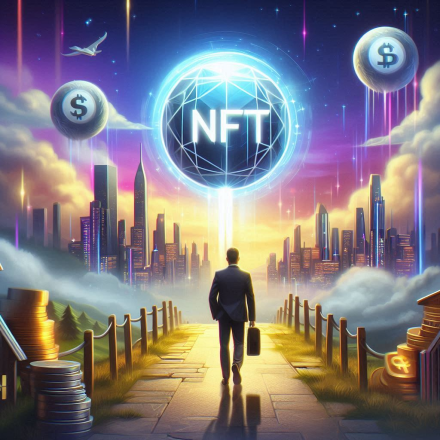Blockchain technology is changing numerous industries-including the insurance sector. Smart contracts offered by blockchain simplify and automate the claims process and reduce complexity while increasing efficiency and security. Estimated global insurance fraud losses run over $40 billion each year, so there is certainly a need for innovation in this area. It brings that promise in blockchain and smart contracts, hence a more transparent, faster, and reliable claims process for the insurers and the customers.
What's a Smart Contract in Insurance?
A smart contract is a self-executing digital contract in the form of code stored on a blockchain. It can automatically enforce the terms of the contract based on pre-set conditions; in the context of insurance, claims can be instantly validated and processed once certain conditions are met, without an intermediary of any kind. The smart contracts contain a decentralized ledger like in blockchain: Transparency is given by blockchain to information, which the traditional contracts often do not.

Advantages of Smart Contracts in Insurance for Faster Claims Settlement
- Smart Contracts and the Benefit of Faster Claims Settlement: The advantage of smart contracts in insurance is speedy claims processing. Traditional insurance claims are slow because of paper work and sometimes middlemen and back-and-forth communications. A survey by Accenture found that blockchain can accelerate processing time by up to 70%. This saves the policyholder's time and frees resources for an insurer as well. While with the help of smart contracts, claims processing times could be decreased from weeks to hours, thereby enhancing customer satisfaction and retention.
For instance, if an insured event occurs, such as flight delay or a natural disaster, smart contracts can automatically check and verify all relevant details to release funds instantly without manual verification and approval.
- Increased Transparency and Security: Transparency and security are one of the known benefits of blockchain technology. Each transaction in the blockchain undergoes a blockchain ledger that cannot be altered or tampered with unless by approval of a majority of nodes in the blockchain network; thereby, it is almost impossible to manipulate records. In this case, from the insurer's point of view, they will be able to access a reliable audit trail of all actions in a given claim. For example, AXA Insurance tested a smart contract-based insurance product in 2019. This system ensured automatic reimbursement to the customers of any delayed flight securely, clearly, and with minimal intervention. According to Deloitte, fraud costs will decline by 20% at the insurance companies using blockchain for claims. In the same way, smart contracts allow the insurer and the policyholder to observe their transactions as transparent and tamper-proof, hence instilling trust and narrowing disputes.
Blockchain and Smart Contracts: Eliminating Costs
Traditional insurance claims are typically costly to administer. With fraud detection, data verification, and administratively overhead, insurers waste valuable resources on managing claims. Blockchain technology has a way of dramatically cutting costs by eliminating intermediaries and automating much of the claims process.
- Reduction in Fraud Detection Cost: The costs to companies from this insurance fraud run into billions of dollars every year because insurers have to verify the genuineness of every claim. Blockchain's transparent ledger would allow a reliable record of all previous claims, minimizing the chance of duplicate or fraudulent claims. According to estimates of PwC, fraud comprises 5-10% of all submissions related to insurance claims. The companies would be able to bring these costs of fraud down to as high as 30% if they applied automated checks related to fraud with reliance on blockchain's ledger.

- Automating Payouts with Smart Contracts: These smart contracts minimize more time and cost with regards to manual verification and the assessment for payment approval. It is particularly very handy in insurance companies that have to receive high volumes of claims, say health, automobile, and travel insurance. Rather than processing each claim, smart contracts enable payment upon meeting set conditions. According to McKinsey, a report states that automating payouts can reduce administrative costs by up to 50%.
- The cost-economy measure from the above point has, therefore, provided the competitive advantage for insurance companies deploying blockchain technology because their policies will be less expensive and reachable.
In health insurance, smart contracts can process claims automatically right after getting verification of treatment. Claims no longer would be forwarded by a patient and undergo delay in awaiting approval; rather, administrative bottlenecks are reduced. With real-time access to treatment records, insurers can make decisions faster. Anthem as one of America's health insurance companies, has been testing blockchain for ensuring patient records and, in real-time, to process the claims. That means security increases, and patients can get claims processed quickly.
- Auto Insurance Pay-outs Based on the Accidents: Smart contracts can also be effectively applied in auto insurance. An accident, for example, can immediately call out smart contracts to analyze the incident through IoT, such as vehicle sensors, to get the process of filing a claim underway. In this way, claims take nearly no time at all and the possibilities of fraudulent claims are significantly reduced. Auto insurers can reduce the fraudulent claims rate by up to 50% and ease the verification process through a combination of IoT and blockchain.
- Property Insurance: Claims due to Natural Disaster: Within property insurance, smart contracts can be activated based on data inputs from established sources, such as the National Weather Service, in weather-related claims. For example, when a flood has destroyed property, the insurance company may check to ascertain whether a flood had occurred and then activate the smart contract to release funds right away.
Reducing Challenges: Adoption and Regulatory Barriers
Many benefits abound with the technology of blockchain and smart contracts, yet when it comes to applying them in the insurance context, challenges abound. There are the regulatory compliance issues, whereby different regions have different requirements for digital data and ways in which contract enforcement is organized. Meaningful investments in technology and employee training are required to integrate blockchain with existing legacy systems.
Despite all of these issues, the long-term benefits of blockchain in insurance, such as reduced fraud, faster claims processing, and cost savings, make the adoption of blockchain worthwhile for the industry.

The Future of Insurance with Smart Contracts
Blockchains and smart contracts go beyond technical innovation; they are fundamental changes that can modify the look of the insurance industry. Blockchain simplifies the processing times, reduces fraud, and automates claims for an insurance company to provide faster and more transparent services at cost-effective rates. As wide bases of insurers continue implementing blockchain, customers would enjoy efficient and consistent claims processing.




